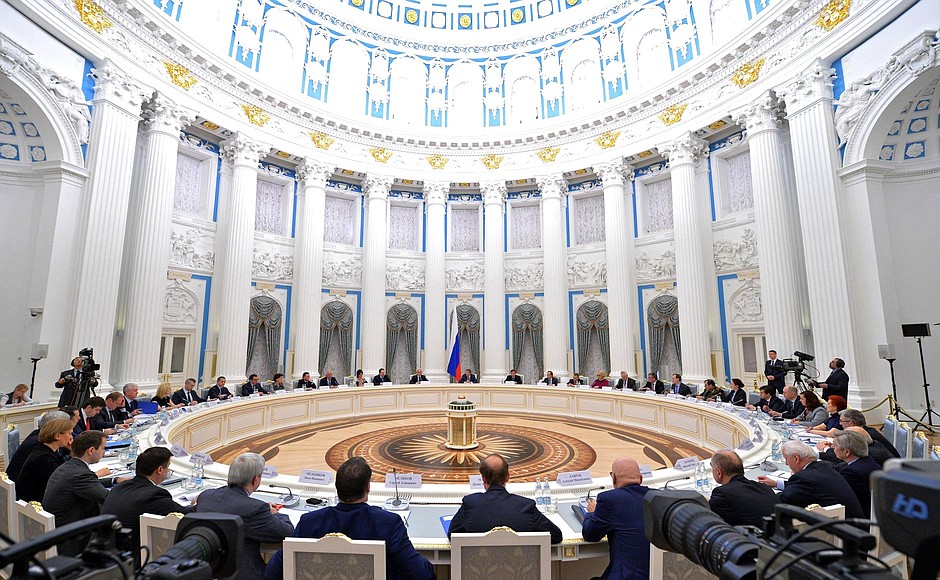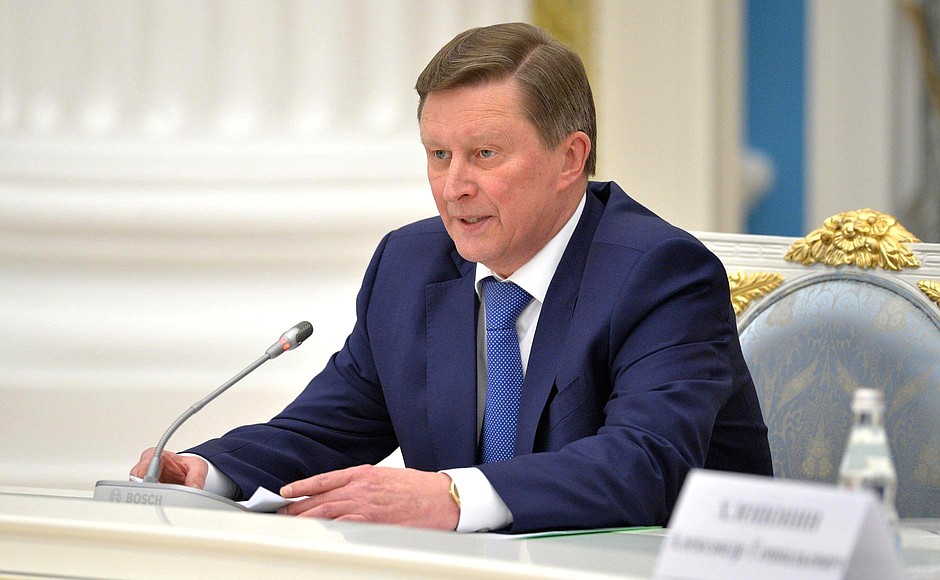The organising committee includes the heads of federal and regional executive bodies, presidential plenipotentiary envoys, and representatives of research centres and NGOs.
Opening the discussion, the Chief of Staff stressed that the Year of the Environment should provide a new impetus to the efforts to improve environmental legislation, introduce modern resource-saving technology, clean up polluted territories and preserve rare animal species.
Mr Ivanov mentioned the formulation of a new approach towards waste disposal among the committee’s priorities. He recalled that on January 1, 2017, new legislation comes into effect, tightening the regulations on the recycling, disposal and neutralisation of solid household waste. He highlighted the need to move ahead with the construction of modern waste-processing plants generating thermal and electrical power.
According to Mr Ivanov, the preservation of water bodies, such as lakes, rivers and seas, should become an important area of activity. It is essential to continue the construction and modernisation of purification facilities and clean up coastal areas, paying special attention to Baikal, he said.
He also touched on the problem of deforestation as result of illegal logging and fires caused as a result of unsafe fire practices. Public awareness campaigns, including among young people, and the implementation of the reforestation initiative should make a substantial contribution to reforestation.
Mr Ivanov updated the participants on Russian companies’ transition to the best available technology (BAT). Three hundred major domestic manufacturing facilities that are potentially the most hazardous in terms of noxious emissions will start implementing BAT in 2019, and as of 2020, the installation of equipment minimising environmental pollution will be mandatory for all enterprises. The Chief of Staff stressed that this involves large-scale technological modernisation that will make it possible not only to reduce the negative impact on the environment but will also contribute to the creation of safe jobs and enhance labour productivity.
One important project is mitigating the effects of the environment damage caused to the Arctic and other regions over previous decades. In addition, it is necessary to reinforce the status of protected natural territories, reserves and national parks and to prevent the illegal seizure or utilisation of their lands for commercial purposes.
With regard to rare animal species, it is essential to continue providing conditions for the wildlife’s natural habitat, Mr Ivanov said. By way of example, he cited the successful experience of the implementation of the Amur tiger and Far Eastern leopard conservation programmes.


